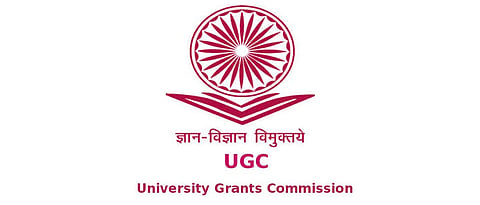

PUNE: The University Grants Commission (UGC) intends to reform the examination system at all universities by making education more learning outcome-based. It stated that the current examination system tests only memory learning skills, but a profession requires students to not just have information, instead, they should be able to apply knowledge in situations, either routine or complex.
The commission released a committee report on evaluation reforms on Saturday. The report stated that examinations in its current form are moments of stress and anxiety for students, both pre-examination as well as post-examination.
There also are issues of malpractices, which have an impact on their credibility.
Therefore, the report suggested that formal education, open and distance learning education should aim at the overall development of students in terms of their critical thinking, problem-solving ability, right application of knowledge and maintain ethics.
The UGC constituted a 10-member committee of vice chancellors (VC) in May 2018. It was headed by MM Salunkhe, VC of the Bharati Vidyapeeth (Deemed to be University) and had members including VK Jain, VC of Tezpur University (committee co-chairman), Furgan Qamar, Secretary General of Association of Indian Universities, Jaspal Sandhu, VC of Guru Nanak Dev University, Tankeshwar Kumar, VC of Guru Jambeshwar University of Science and Technology, Prem Kumar Katra, Director of Dayalbagh Educational Institute, K Biswal of Department of Educational Management Information System, NIEPA, KP Upadhyay, former Controller of Examination at Banaras Hindu University, Shashi Nijhawan, Principal of Shivaji College and Renu Batra, Additional Secretary of UGC. Also, Megha Kaushik, Education Officer of UGC assisted the committee.
Speaking to Sakal Times, Salunkhe said, “Previously, educational institutes would provide information to students and then judge how much of it they could retain. But according to the new concept, we have suggested that student’s skill, creativity and innovation be judged based on knowledge given to them. Earlier, the talk or vision was in terms of qualitative education, like what vision and mission do institutes have, discuss the course and programme outcome offered by educational institutes. However, we have never focused on how much has been achieved from this system.”
“So now, according to reforms suggested, we have to see which question leads to what object? How many students are attending the question? This will help analyse how much has been understood by students,” added Salunkhe. He said evaluation is the major concept in the education system. “A student should not be in a position, where he/she is always examined. Instead, evaluation should be holistic. It should consist of all aspects from theoretical to practical,” said the head of the committee.
“Course-specific objectives will be there. For example, students of mathematics should be able to do maths, which can be applied in real situations. At the end of a particular course, a student should be prepared to pick any kind of job he/she would like to pursue. We have to train them likewise,” said Salunkhe.
“None of the given suggestions in the report are mandatory. The UGC is still calling for public views. If anybody has a better model and suggestion, they can ask the commission for making reforms in the education system,” he stated.
